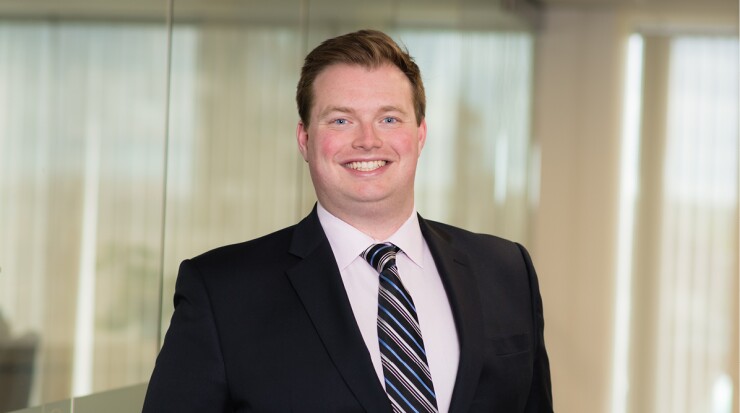Financial advisors overseeing trillions of dollars of assets are preparing soon for their retirement years, making new talent an important commodity in wealth management.
But those entering the profession these days aren't finding it a welcoming place.
A
Factoring in another 2,459 advisors who retired, firms only added a net estimated 2,579 new advisors last year, Cerulli found — a number that it said is "barely offsetting" advisor departures. In other words, wealth management as an industry appears
"The industry is facing this crisis where the replacement rate for advisors is going to be diminishing," Stephen Caruso, a research analyst at Cerulli, said in an interview. "There's significantly more advisor retirements, and as that ramps up as a result of

As of 2021, around $2.4 trillion — 8% of industry assets — were controlled by advisors who planned on retiring in five years or less, Cerulli said. Nearly 37% of all advisors planned on retiring in the next decade as of 2021 — but over a quarter of those advisors, 26.3%, were unsure of their succession plans.
'Where the rubber hits the road'
By investing early in a strong talent pipeline, recruiting more broadly and devoting extra resources to developing their junior talent, financial advisors can set themselves up for long-term success and their own smooth transition to retirement someday. But that's a hard sell for many, who are more focused on their immediate bottom lines, according to industry recruiter Jason Diamond.
"We get calls from advisors and firms all the time, literally every day, telling us that they need additional resources — they need advisors to free up capacity," said Diamond, the vice president and senior consultant at Diamond Consultants in Morristown, New Jersey.
"But when the rubber meets the road, unfortunately, the types of people we're talking about are revenue-negative for at least some period of time … and a lot of firms or advisors are not willing to eat that."
Diamond said that typically he's seen advisors take a minimum of three years to
"That's a lot of money. It's hard to do. It takes time. Especially (for) somebody young, who doesn't have an extensive network of wealthy individuals to tap into," he said.
Read more:
In the Cerulli report, 69% of the rookie advisors said they were expected to build their entire client base from scratch — which put many into a catch-22 situation where they need wealth and contacts among the wealthy to launch, but lack help to get off the ground. While 45% of the rookies said they managed small-balance accounts for a senior advisor, which could be an avenue for them to transition into big accounts, some of them apparently didn't receive clear messaging on how that transition would happen.
"A well-structured training program should gradually shift rookie advisors into production and provide a natural progression of their roles and responsibilities," Cerulli said in the report.
Yet these so-called "rookies" are in most cases already highly skilled professionals who have valuable experience to tap, Cerulli found.
"Just 15% of rookies report financial advisor as their first career," the report said, adding that only 43% had previously worked in financial services. The average rookie age was 37, and many of them already had experience in sales, marketing, or investments. While the role of financial advisor has historically been sales-focused, across the board, most of the rookies (84%) had been drawn to the profession because they wanted to "help others reach their financial goals," Cerulli found.
Sustaining the financial planning profession
In keeping with that, the biggest piece of training that rookies wanted more of was in financial planning — not sales.
"71% of rookie advisors believe training in financial planning is very important, yet just 47% find themselves very satisfied with their firm's support on the topic," Cerulli said in the report. "This
Shawn Tydlaska, a Burlingame, California-based financial planner who is the founder and CEO of registered investment advisor
"As planners, we want to help people with the stressors of personal finance. So the more people that we get into the profession, the better," he said.
Read more:
In his own practice, Tydlaska said he trains advisors for two years in an apprenticeship-style residency model, with the goal of helping them obtain their certified financial planner license at the end of the two years and become able to work on their own with clients.
"They're sitting in on client meetings from day one. They're taking notes, they're learning," he said.
Tydlaska — who is the co-founder of
"The future is diverse," Tydlaska said, noting that the
"So these are the planners that are going to be serving your clients," he said.






